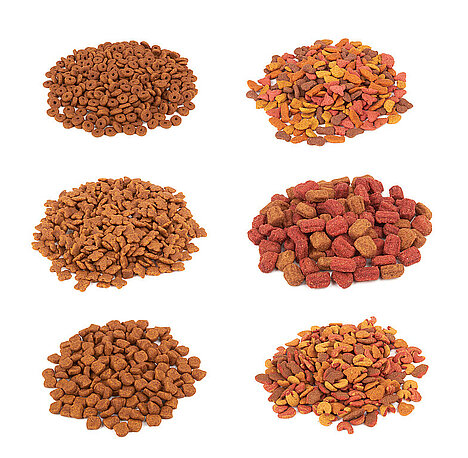Low-substituted hydroxypropyl cellulose

Low-substituted hydroxypropyl cellulose (NSHPC) is a synthetic polysaccharide made from cellulose. Cellulose is a natural component of plant fibers and is also found in wood and cotton. NSHPC is used as a thickener, stabilizer, emulsifier, binder and coating agent in various products such as food, cosmetics, pharmaceuticals and paper.
What does NSHPC have to do with dogs?
You may be wondering what NSHPC has to do with dogs. The answer is: not much. NSHPC is neither particularly useful nor particularly harmful to dogs. It is an indigestible dietary fiber that has no effect in the gastrointestinal tract of dogs. NSHPC may be present in small amounts in some dog food products to improve texture or appearance. It may also be found in some medications or supplements for dogs to affect release or adhesion.
What are the benefits of NSHPC for dogs?
NSHPC has no direct benefits for dogs. It is an inert material that provides no nutrients or energy. However, it may have some indirect benefits depending on how it is used. For example:
- NSHPC can help improve the texture or appearance of dog food, which may affect the acceptability or eating behavior of dogs.
- NSHPC can help control the release or adhesion of medications or supplements for dogs, which can improve efficacy or tolerability.
- NSHPC can help increase the stability or shelf life of products for dogs, which can ensure quality or safety.
What are the disadvantages of NSHPC for dogs?
NSHPC has no direct disadvantages for dogs. It is a harmless material that does not cause toxicity or allergies. However, it can have some indirect disadvantages depending on how it is used. For example:
- NSHPC can alter the taste or odor of dog food, which can cause dogs to dislike or vomit.
- NSHPC may interfere with the absorption or elimination of medications or supplements for dogs, which may increase overdose or side effects.
- NSHPC may reduce the quality or safety of products for dogs if it is stored or processed incorrectly.
NSHPC is a synthetic polysaccharide that can be found in various products for dogs. It has no direct benefits or disadvantages for dogs, but it can have some indirect effects depending on how it is used. You should always make sure that you only give your dog products that are suitable and safe for them.
If you notice any signs of hypersensitivity or poisoning in your dog, you should see your vet immediately. We are not a substitute for a vet, but we try to be as accurate as possible. Every dog reacts differently and we recommend you get a second opinion or consult your vet if in doubt.
Stay healthy and take good care of your four-legged friend!😊
Similar to Low-substituted hydroxypropyl cellulose
Hydroxypropylmethylcellulose is a synthetically produced substance obtained from cellulose. Cellulose is a plant fiber that occurs naturally and is found in wood or cotton, for example....
CMC is a derivative of cellulose, a plant substance consisting of sugar. CMC is formed when cellulose is treated with caustic soda and chloroacetic acid. Some of the hydroxyl groups of the cellulose...
Ethyl cellulose is a derivative of cellulose that is produced by the chemical reaction of cellulose with ethylene oxide. It is a water-insoluble fibre that is used in the food and pharmaceutical...
An insight into the chemistry Methylcellulose is a chemically modified derivative of cellulose, the main component of plant cell walls. Treating cellulose with methyl chloride produces a...



